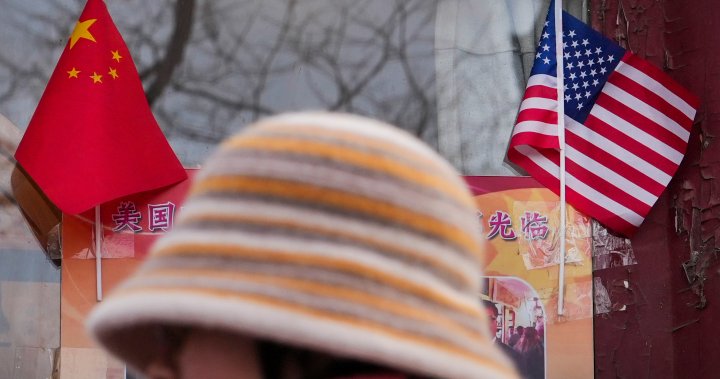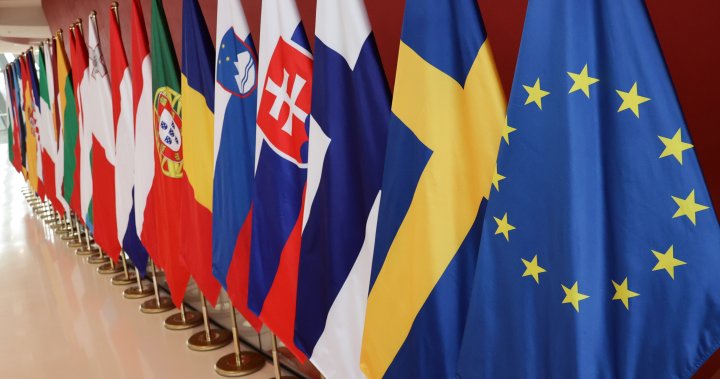After Assad’s ouster in Syria, what next for refugee claims in Canada? – National

After more than a decade of civil war that displaced millions, the ouster of Bashar al-Assad as Syria’s president by a coalition of rebel groups on Sunday is raising questions about what should happen now to Syrian asylum claims.
Several European countries are suspending or pausing the processing the asylum claims from Syria. But what does the future hold for Canada’s own Syrian refugee program?
Speaking to reporters in Ottawa, Immigration Minister Marc Miller said Canada would continue to evaluate asylum claims, since the country doesn’t face the same pressure or numbers from refugees as countries like Germany or Austria.
“We don’t face that flow in Canada. I don’t know what rank they occupy in terms of source countries for asylum seekers, but it’s pretty low,” Miller said.
Canada has just shy of 1,600 pending refugee claims from Syria as of Sept. 30.
Germany has more than 47,000 pending refugee claims from the country, according to the Associated Press.

Since 2015, more than 100,000 Syrian refugees have been resettled in Canada.
The plight of the Syrian people fleeing Assad’s brutal crackdown became part of the 2015 federal election campaign discourse in Canada after the image of three-year-old Syrian toddler Alan Kurdi‘s drowned body face down on a Turkish beach horrified Canadians.
Relatives of Kurdi who fled Syria and were sponsored by family in B.C. were able to come to Canada in December 2015.
A spokesperson from Immigration, Refugees and Citizenship Canada told Global News they can’t speculate what future policy changes could be.
“We are actively monitoring the situation and can’t speculate on future policy decisions. We also won’t comment on decisions taken by other countries,” a statement said.
The statement added that Syrian refugees who are resettled arrived in Canada as permanent residents.
Asylum claims in Canada are heard by the Immigration and Refugee Board of Canada (IRB), an independent, quasi-judicial tribunal.
Marwa Khobieh, executive director of the Syrian Canadian Foundation, said that while Syrians were feeling “immense joy” at the fall of the Assad regime, the refugee crisis was not yet over.

Get daily National news
Get the day’s top news, political, economic, and current affairs headlines, delivered to your inbox once a day.
“I was deeply concerned and were disappointed by these reports of how some countries are pausing or suspending (claims of) asylum seekers. The conditions on the ground in Syria remain unsafe for most refugees to return. There’s still lack of basic services, basic infrastructure,” she told Global News.
Gauri Sreenivasan, co-executive director of the Canadian Council for Refugees, said Canada’s response in the last few days has been “excellent.”
“I’m really pleased to see the Canadian government not rushing to indicate any change of policy. I think what’s needed here is steady observation,” she said.

‘Syrians want to visit, but not yet move’
Khobieh said despite the joy they feel, members of the Syrian diaspora are worried about family members back home, particularly those who were political prisoners under the Assad regime.
“Almost every Syrian family has a relative or a loved one that was detained. Most of them are innocent. They didn’t commit any crime. Most of them just were in the wrong place at a checkpoint and they just disappeared for years,” she said, adding that many are posting details of their loved ones on social media or community groups to see if they were alive and being freed by the rebels.
Khobieh said she hopes to visit her old neighbourhood in suburban Damascus someday soon, but for many Syrians, moving back is still a tall order.
“Many people would like to visit. But I think moving and leaving Canada is still a premature move,” she said.

While the rebel coalition was made up of several factions, the group believed to be leading the offensive across Syria is the Hayat Tahrir Al-Sham, or HTS.
HTS, an Islamist group and listed terrorist entity in Canada and the U.S. which was formerly affiliated with al-Qaida, has worked to distance itself from the terror group and promised protections for Syrian minorities such as Christians and Alawites.
Evren Altinkas, adjunct professor at the University of Guelph, said Canada should watch the situation carefully.
“There will be a surge of refugees from Syria, especially the Shiite groups, the Alawite groups and Druzes, Christians and Kurds if the war continues,” he said.
“I believe Canada should start considering any kind of relief opportunities for these people, because I expect another surge very soon.”
Kobieh said, “Policy should remain focused on providing refuge to those fleeing violence and instability, while also contributing in international efforts to stabilize and hopefully rebuild Syria.”
The Canadian Council for Refugees is also cautioning Canadian politicians against politicizing the issue.
“We are really encouraging politicians to be very careful in their rhetoric, to not mislead the public and to recognize the strong support (among Canadians for Syrian refugees) that continues to be out there,” said Sreenivasan.

Germany opened its doors wide to a surge of asylum seekers in 2015 at the height of Syria’s civil war, and is now home to nearly a million Syrians, the largest community in Europe.
The Berlin Interior Ministry said on Monday it would not process asylum requests until there was more clarity on political developments in Syria. Britain paused decisions on asylum claims as well, with the interior ministry saying it was assessing the situation.
Under a British government scheme, 20,319 Syrian refugees had been resettled in the country between March 2014 and February 2021, according to the Refugee Council.
Other countries including Norway, Italy, Austria and the Netherlands also announced suspensions of Syrian requests. France said it hoped to announce a similar decision shortly.
In its statement, the Italian government said it would keep a diplomatic presence in Damascus, expressing “deep gratitude” to the embassy staff there.
–with files from Canadian Press and Reuters








